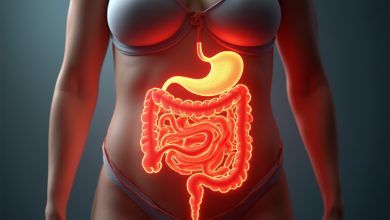
The Power of Supplements: Do They Really Help Hair Regrowth?
Introduction
Hair loss can be a frustrating experience for many people, regardless of age or gender. With countless products on the market promising miracles, it’s no wonder that many turn to supplements in hopes of restoring their luscious locks. But do these supplements truly help with hair regrowth? In this article, we will explore the science and facts behind hair regrowth supplements.
Understanding Hair Loss
Before diving into supplements, it’s essential to understand the common causes of hair loss. Factors such as genetics, hormonal changes, nutritional deficiencies, stress, and certain medical conditions can all contribute to thinning hair or baldness. Identifying the root cause is crucial for determining the most effective treatment.
What Are Hair Regrowth Supplements?
Hair regrowth supplements typically contain vitamins, minerals, and herbal extracts aimed at improving hair health. Some of the most common ingredients include:
- Biotin: Often touted as a hair growth miracle, biotin is a B-vitamin that supports keratin production.
- Vitamin D: Known for its role in hair follicle cycling, a deficiency in vitamin D has been linked to hair loss.
- Iron: Essential for proper blood circulation, iron deficiencies can lead to hair shedding.
- Zinc: Important for hair tissue growth and repair, zinc plays a role in the functioning of oil glands around hair follicles.
- Folic Acid: This B-vitamin helps generate new cells, making it beneficial for hair growth.
Do Supplements Really Work?
The effectiveness of hair regrowth supplements can vary depending on several factors. Here’s what research suggests:
- Deficiencies Matter: If your hair loss is due to a specific nutrient deficiency, taking supplements can help. For example, those low in iron or vitamin D may see improvement with supplementation.
- Individual Responses Vary: Not everyone will respond to supplements in the same way. Some may notice significant improvements, while others may see little to no change.
- Long-term Commitment: Hair growth is a slow process. It often takes several months to notice any difference, and consistent use is key.
Additional Tips for Healthy Hair
While supplements can play a role in hair regrowth, they are not a magic solution. Here are some additional tips to support healthy hair:
- Eat a Balanced Diet: Focus on a diet rich in fruits, vegetables, whole grains, and lean proteins to provide your body with essential nutrients.
- Stay Hydrated: Drinking enough water aids in overall health, including hair health.
- Manage Stress: High-stress levels can contribute to hair loss. Consider stress-reduction techniques like yoga or meditation.
- Gentle Hair Care: Avoid harsh treatments, limit heat styling, and use gentle hair care products to minimize damage.
Consulting a Professional
If you’re considering taking supplements for hair regrowth, it’s a good idea to consult with a healthcare professional. They can help determine if you have any deficiencies and recommend the best course of action based on your individual needs.
Conclusion
Supplements can be a helpful addition to your hair care routine, especially if you’re dealing with nutrient deficiencies. However, they are most effective when combined with a balanced diet and healthy lifestyle choices. Remember, patience is key—hair regrowth takes time, and finding the right approach for you may involve some trial and error. With informed decisions and a little persistence, you can work toward achieving healthier, fuller hair.




